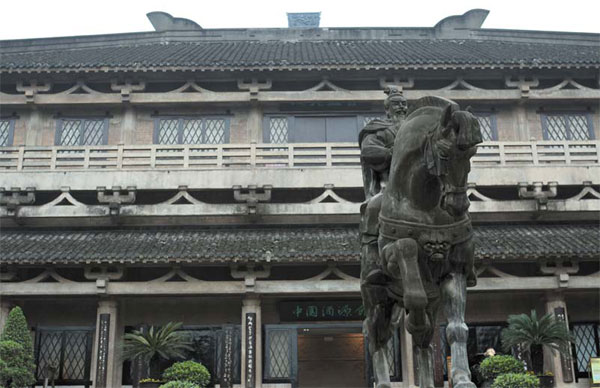Perfecting the blend
Deng Qingqing maintains a healthy lifestyle. She exercises regularly, makes sure she gets adequate rest and sticks to a light diet.
All this is so she can remain in top condition to taste and grade China's most sought-after liquor.
"You have to be physically and mentally prepared," she said. "You need to be confident and believe in your judgment."
Deng, 28, is a liquor taster at Kweichow Moutai Co Ltd for the Moutai baijiu - white spirit distilled from fermented red sorghum. She is one of its more than 100 baijiu tasters, of whom seven are national-level professionals recognized by the country's alcoholic drinks association.
Deng is a third-level taster at the distillery and one of the youngest workers in her department.
A native of Maotai township in Renhuai, Guizhou province, Deng studied biological engineering at the East China Institute of Technology in Jiangxi province before returning to her hometown that is known nationwide for producing the iconic spirit.
Deng decided to take up liquor tasting purely out of curiosity.
"Every industry is like this: when you are an outsider, it seems mysterious. But when you are into it, you will find that it is not that insurmountable."
Similar to wine tasting, assessing the quality of baijiu includes major steps such as judging its appearance, smell and taste.
The taster's first step is to look for clarity in the drink, Deng said.
"Any unnatural, impure or foreign elements in the liquor will affect its clarity," she said.
The second step is to judge the aroma and bouquet.
"We usually use a specific label to remember the scent of the liquor, such as rose or jasmine," she said.
The drink is then swirled in its glass before it is finally tasted.
"The age of the liquor can be judged by the 'legs' or its viscosity," Deng said.
"Tasting is about harnessing the taste buds on the tongue to detect all the various qualities of the liquor.
"First, saturate your tongue with the liquor for a general impression. Then allow it to infuse and reach the different parts of the organ, to distinguish and differentiate the various characters of the liquor."
Timing also matters - research has shown that human taste buds are at their most sensitive at 9 am and 3 pm, she said.
Women can also be more gifted tasters than men because they tend to have "more delicate" sensory organs, said Deng, who confessed that there are still more men than women in her department.
But experience is what really matters, she said.
"That can only be gained through numerous tastings. It is the only way to improve yourself and close the gap.
"This job is ultimately about grading the quality of the Moutai that comes out of our distilleries.
"That means that liquor tasting is also one of the key technologies of the group."
As such, the company's best tasters are also in charge of a crucial process that determines the quality of its Moutai - blending.
At Moutai, making a bottle of baijiu takes at least five years. Its aging times are among the longest in the country's liquor industry - one year for production, three for storage and one for storage after blending.
The procedures also involve numerous cycles of fermentation and high-temperature distillation under strict conditions before the base liquor is produced.
That is then stored in jars prior to the blending process. The master blenders select liquor from the same batch, of similar high quality.
The company's top grades of baijiu are destined to be bottled under its flagship Flying Moutai range, at 53 percent alcohol by volume.
"The process is based solely on the experience of the taster," Deng said.
Deng also had to go through numerous tests by a panel of judges before she was certified as a liquor taster.
Ji Keliang, the honorary chairman of Moutai and one of the best-known liquor tasters in China, said he has drunk about two tons of Moutai in his life. Other tasters certified by the China Alcoholic Drinks Association include Yuan Renguo, the board chairman of Moutai and Liu Zili, the company's general manager.
Ji has said that, unlike many other tasters, he mostly relied on his nose to do the job.
"I counted on my nose because my capacity for alcohol was low compared to others. I would've been drunk before I gave my verdict," he joked.
Compared to these veterans, Deng has much to learn but she looks forward to doing so.
"When you come across an exceptional batch of Moutai and take a sip of it, you will want to have another," she said.
|
Liquor making is an important part of local culture. The liquor museum in Maotai town displays the 2,000-year history of the industry and the unique techniques that have been passed down for many centuries. Wang Zhuangfei / for China Daily |
(China Daily 03/06/2015 page7)















